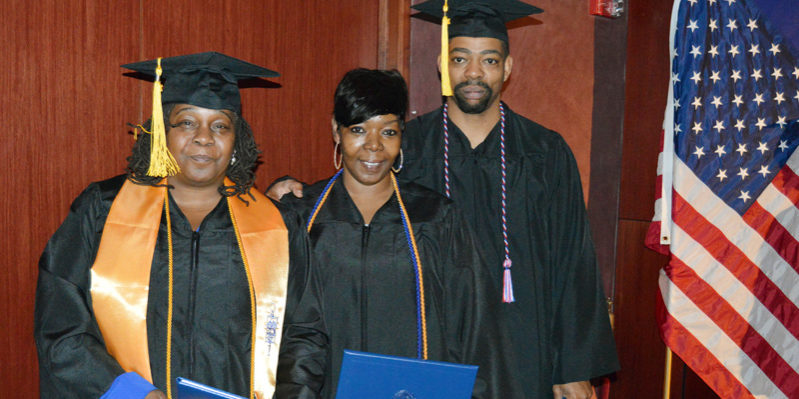
In an era of high college costs, long-term student debt, and an uncertain job market, students and parents consider a college degree a serious investment. Factors like price, debt, post-graduation employability, and salary outlook must all be weighed when deciding on a school.
How can you make a wise choice? Posing the following questions can help chart your course.

- What is the cost of tuition?
Cost is a consideration – if not the prime consideration – for most students and their families. Community colleges, which as the name implies serve local communities, are a fraction of the cost of public four-year universities, private schools, and for-profit colleges.
Market pressures and decreased state support have pushed other major colleges and universities throughout Michigan to increase their tuition substantially in recent years. By contrast, HFC has worked to keep its education costs extremely affordable. Students can earn top-quality degrees and certificates at HFC at a fraction of the cost of other educational institutions, saving up to $32,000 in tuition.
The following numbers are based on in-state/in-district tuition rates only (fees not included) for 60 credit hours based on a student taking 15 credit hours/semester at HFC:
| Savings for In-District Students | |
| Average Savings over Public Institutions | $18,562.07 |
| Average Savings over Private Institutions | $53,031.60 |
| Average Savings-All institutions | $32,349.88 |
The following numbers are based on out-of-district rates only (fees not included) for 60 credit hours based on a student taking 15 credit hours/semester at HFC:
| Savings for Out-of-District Students | |
| Average Savings over Public Institutions | $14,362.07 |
| Average Savings over Private Institutions | $48,831.60 |
| Average Savings-All institutions | $28,149.88 |
For a detailed chart of HFC’s rates for the 2017-18 academic year and a tuition comparison calculator, visit hfcc.edu/tuition-and-payment.
- What programs are offered?
Community colleges offer numerous associate degree programs, as well as short-term certificates taking only months to complete. These include industrial and technical, medical and STEM-focused, as well as traditional humanities and science programs.
HFC offers more than 120 associate degree and certification programs, a bachelor’s degree program in Culinary Arts, a tuition-freeze guarantee, a university center, and exceptional transfer resources.
- What are the economic outcomes for graduates?
Most students are rightly concerned about landing a job after earning a degree. Are the skills they learned in college applicable in the workforce?
While community colleges are sensitive to local economic shifts and the needs of industry in their service areas and tailor their courses accordingly, most four-year schools and for-profits are less responsive. Students have been defining their future through HFC’s market-responsive programs for nearly 80 years. HFC’s close corporate/industry partnerships provide unparalleled career and educational opportunities for students.
Further, HFC’s Career Service Office (CSO) partners with prospective employers to provide job search assistance to HFC students and alumni. The CSO offers comprehensive tools, resources and services to assist students in building an extraordinary career.
- How much debt will I take on?
Because of the low tuition prices of community colleges coupled with financial aid (for the
2017-18 academic year, the maximum amount of a Federal Pell Grant is $5,920), many students graduate with little to no debt. This is perhaps the “best kept secret” of community colleges.
Students enrolled at four-year public and private universities tend to spend a lot more on college from the beginning, thus accumulating more debt. For-profit schools are often worse, charging high rates and causing students to accrue large debt loads.
- Will my credits transfer?
Most community colleges have articulation agreements with four-year schools. Articulation agreements – like a 3+1, taking three years at a community college and one year to finish at a public four-year school – ensure students don’t waste their time or money earning their bachelor’s degrees.
HFC has partnerships with Madonna University, Siena Heights University (SHU), and Eastern Michigan University (EMU) through its University Center. Students can save money and take classes directly through Madonna, SHU, or EMU right here on the HFC main campus. HFC offers a Reverse Transfer Agreement (RTA) in conjunction with nearly 10 Michigan-based colleges and universities, including Michigan State University (MSU) and Walsh College. RTAs allow students to transfer credits earned at these respective educational institutions to HFC, so that they may be awarded an associate degree retroactively after leaving HFC.
- What resources does the school provide to help me succeed?
Community colleges place a premium on helping students complete their goals, even when life is complicated by work and family obligations. Most two-year schools offer flexible and online class options that work around people’s busy schedules.
Student success often comes down to the resources a college can provide outside of the classroom. Financial advising, career placement, tutoring, and other student services are vital for navigating higher education. Community colleges offer a unique support system to students.
One of HFC’s unique options is a food pantry called the Hawks’ Nest. Its purpose is to decrease food insecurity on campus by offering non-perishable food items to students. Eligible students can visit the Hawks’ Nest once per week for four weeks. The Hawks’ Nest is intended to provide supplemental food assistance to students. A list of additional resources available in the community will be at the Hawks’ Nest.
Naomi Sheehan & Kurt Anthony Krug



